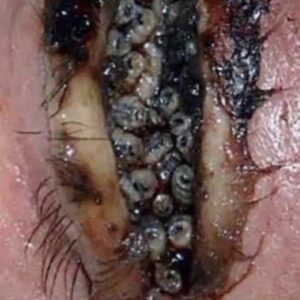A person can usually treat mild acne with topical OTC solutions. However, moderate-to-severe acne or acne that does not improve with OTC treatment may require prescription medications and other treatment from a dermatologist.
This article examines when a person should see a dermatologist for acne, how a dermatologist can help, and what treatments they may recommend.
It also looks at how to find a dermatologist and financial help for dermatology treatment.
If a person’s acne does not improve with OTC treatment and they feel it is affecting their quality of life, they should see a dermatologist for treatment.
Acne most commonlyTrusted Source occurs in adolescents, but it can also affect adults. The causes and types of acne that a dermatologist can treat may differ in adults and teens.
Adults
According to a 2018 articleTrusted Source, adult women develop acne more often than men. They most often experience mild but persistent forms of the condition.
Adults should see a dermatologist for acne treatment if:
Their acne negatively impacts their quality of life: Adult acne may lead to stress, anxiety, depression, and suicidal ideation.
OTC treatment is ineffective: Acne may require treatment from a dermatologist if it does not respond to OTC treatment or clears temporarily and then returns.
Their acne is severe: A person should see a dermatologist if they have cysts, nodules, and deep, painful acne.
They have late-onset or persistent acne: Late-onset acne may occur in adults who have never previously had the condition. Persistent acne is a relapse or continuation of acne from adolescence into adulthood. Researchers associate both types with scarring and pigmentation, which a dermatologist may help prevent and manage.
Medication may be the cause of the acne: Medications including lithium and corticosteroids may causeTrusted Source acne. A person should not stop taking prescribed medication. Instead, they should inform a dermatologist of all the medication their doctor has prescribed.
The acne is causing scars or pigmentation: Acne may cause scarring or dark spots as it heals. A dermatologist may be able to help treat and prevent scarring and pigmentation.
Teenagers
Although acne may improve in some adolescents with OTC treatment or gradually improve with age, some teenagers may require treatment from a dermatologist.
Teenagers should see a dermatologist for acne treatment if:
The acne is affecting their mental health: Acne can affect teenagers’ self-esteem and may lead to mental health conditions such as anxiety and depression. Acne treatment may help relieve mental health issues in teenagers.
Their acne is severe or does not respond to OTC treatment: Stubborn or severe acne that causes cysts or nodules may require treatment from a dermatologist.
The acne is causing scarring or pigmentation: Although adolescent acne may clear over time, scarring and pigmentation could remain. A dermatologist may be able to help prevent permanent marks on the skin.





